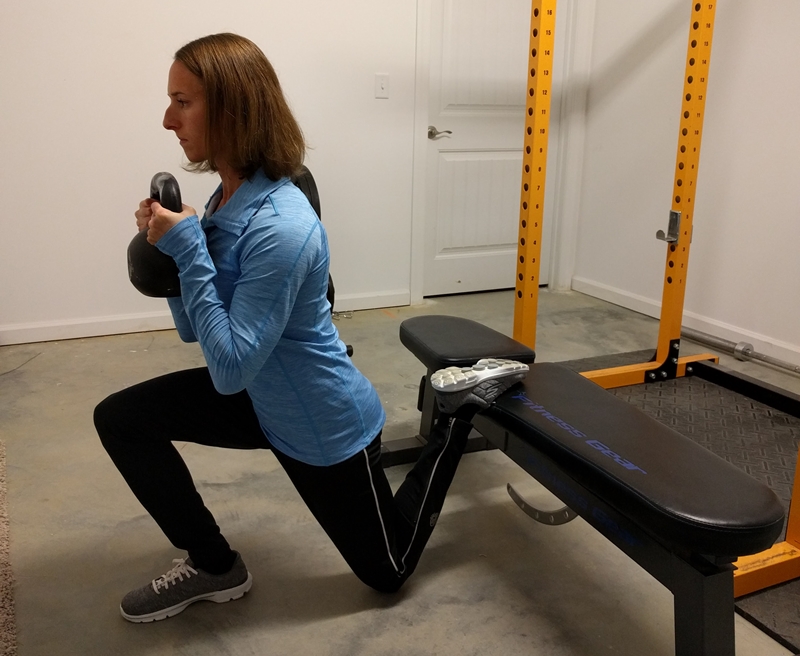Source http://feedproxy.google.com/~r/tinybuddha/~3/UpPze8oFY08/

“I am not a product of my circumstances. I am a product of my decisions.” ~Stephen Covey
One ordinary night after an ordinary day of work and family, I went to bed a mother, wife, teacher, writer-person.
I remember falling asleep between sentences exchanged with my husband after an evening spent with just the two of us on our patio, something we rarely seemed to find the time to do in our busy lives. We promised each other that we’d make a concerted effort to have more of these “dates.”
The next morning, on what was supposed to be another ordinary day, I got out of bed and found my husband collapsed on the living room floor.
Our three young children slept in the nearby bedrooms as the 911 operator guided me through chest compressions.
Our babies, ages six, three, and one, slept as the firemen wheeled their father out of our home. They were sleeping when my parents rushed over so I could follow the ambulance to the hospital. I imagine they were still asleep when I was told by a doctor that there was “nothing they could do.”
The moment I officially became a thirty-four-year-old widow.
Widow.
It’s a word that sticks to your tongue, something you want to knock on wood to prevent. It makes people …
Source http://feedproxy.google.com/~r/tinybuddha/~3/UpPze8oFY08/

“I am not a product of my circumstances. I am a product of my decisions.” ~Stephen Covey
One ordinary night after an ordinary day of work and family, I went to bed a mother, wife, teacher, writer-person.
I remember falling asleep between sentences exchanged with my husband after an evening spent with just the two of us on our patio, something we rarely seemed to find the time to do in our busy lives. We promised each other that we’d make a concerted effort to have more of these “dates.”
The next morning, on what was supposed to be another ordinary day, I got out of bed and found my husband collapsed on the living room floor.
Our three young children slept in the nearby bedrooms as the 911 operator guided me through chest compressions.
Our babies, ages six, three, and one, slept as the firemen wheeled their father out of our home. They were sleeping when my parents rushed over so I could follow the ambulance to the hospital. I imagine they were still asleep when I was told by a doctor that there was “nothing they could do.”
The moment I officially became a thirty-four-year-old widow.
Widow.
It’s a word that sticks to your tongue, something you want to knock on wood to prevent. It makes people …
Source http://www.foodpolitics.com/2017/01/some-progress-in-healthier-school-meals/
I am late in getting to this report on school meals from the Pew Charitable Trusts and the Robert Wood Johnson Foundations, which came out in early December.
Their jointly sponsored Kids Safe and Healthful Foods Project took a good hard look at how schools were faring under the Obama administration’s rules for healthier lunches, breakfasts, and snacks.
Some of their findings:
- 6 in 10 directors said they faced only a few or no ongoing obstacles to meeting updated breakfast requirements; 4 in 10 said the same of the lunch guidelines.
- For breakfast and lunch, the commonly cited challenges were sodium and whole grain targets.
- Most programs use a mix of strategies—three, on average—to encourage students to eat nutritious meals (e.g., salad bars).
- Holding taste tests with students and redistributing uneaten, sealed foods were among the most effective ways to reduce waste (but only about 40% of schools were doing this).
- Programs preparing more foods from scratch and increased the use of salad bars were more likely to report that student participation rose or was unchanged from 2011-2015.
- <span style="color: #000000…
Source http://www.foodpolitics.com/2017/01/some-progress-in-healthier-school-meals/
I am late in getting to this report on school meals from the Pew Charitable Trusts and the Robert Wood Johnson Foundations, which came out in early December.
Their jointly sponsored Kids Safe and Healthful Foods Project took a good hard look at how schools were faring under the Obama administration’s rules for healthier lunches, breakfasts, and snacks.
Some of their findings:
- 6 in 10 directors said they faced only a few or no ongoing obstacles to meeting updated breakfast requirements; 4 in 10 said the same of the lunch guidelines.
- For breakfast and lunch, the commonly cited challenges were sodium and whole grain targets.
- Most programs use a mix of strategies—three, on average—to encourage students to eat nutritious meals (e.g., salad bars).
- Holding taste tests with students and redistributing uneaten, sealed foods were among the most effective ways to reduce waste (but only about 40% of schools were doing this).
- Programs preparing more foods from scratch and increased the use of salad bars were more likely to report that student participation rose or was unchanged from 2011-2015.
- <span style="color: #000000…
Source http://www.niashanks.com/every-woman-strength-train/
 Lose fat and get sexy. The end.
Lose fat and get sexy. The end.
While that’s what most sources say why women should strength train, there are additional (perhaps better) benefits women can reap from weight training. Sure, you’ll see below how it can help you lose fat and tone up, but, you’ll also see how strength training can help you build a better brain (huh?), better bones, better boobs (say what?), sleep better, and basically improve every aspect of your life while making you a better human.
It’s a tall order, but I’m ready to prove it using a combination of science and real world experience. Let’s start with a lesser known strength training benefit.
1. Strength training may improve your cognition.
A 2014 study published in the Journal of the American Geriatrics Society [1] had a group of individuals between 55-85 with mild cognitive impairment perform two strength training workouts per week for six months. Trainees began with weights that were 80% of their maximum and were increased as they got stronger.
Dr. Mavros observed an improvement in cognitive function was related to the strength gains and the beneficial effects they observed led them to recommend strength training to all. Furthermore, MRI scans revealed areas o…
Source http://www.niashanks.com/every-woman-strength-train/
 Lose fat and get sexy. The end.
Lose fat and get sexy. The end.
While that’s what most sources say why women should strength train, there are additional (perhaps better) benefits women can reap from weight training. Sure, you’ll see below how it can help you lose fat and tone up, but, you’ll also see how strength training can help you build a better brain (huh?), better bones, better boobs (say what?), sleep better, and basically improve every aspect of your life while making you a better human.
It’s a tall order, but I’m ready to prove it using a combination of science and real world experience. Let’s start with a lesser known strength training benefit.
1. Strength training may improve your cognition.
A 2014 study published in the Journal of the American Geriatrics Society [1] had a group of individuals between 55-85 with mild cognitive impairment perform two strength training workouts per week for six months. Trainees began with weights that were 80% of their maximum and were increased as they got stronger.
Dr. Mavros observed an improvement in cognitive function was related to the strength gains and the beneficial effects they observed led them to recommend strength training to all. Furthermore, MRI scans revealed areas o…
Source http://www.foodpolitics.com/2017/01/weekend-reading-caring-about-hunger/
George Kent. Caring about Hunger. Irene Publishing, 2016

Kent is a former professor of political science at the University of Hawai’i who in his retirement is teaching at the University of Sydney in Australia and Saybrook University in California. His book is about the causes of hunger and how to overcome them. He’s been at this for a long time and can boil the causes down to brief summaries.
- Disjunction: Hunger and poverty persist largely because the people who have the power to solve the problems are not the ones who have the problems.
- Compassion: On the whole, the people who have the power do not have much compassion for the powerless.
- Material interests: The powerful serve mainly the powerful, not the powerless, because the powerless cannot do much for the benefit of the powerful.
Much of the book focuses on compassion and what he calls “caring.”
- Hunger is less likely to occur where people care about one another’s well being.
- Caring behavior is strengthened when people work and play together.
- Hunger in any community is likely to be reduced by encouraging people to work and play together, …
Source http://www.foodpolitics.com/2017/01/weekend-reading-caring-about-hunger/
George Kent. Caring about Hunger. Irene Publishing, 2016

Kent is a former professor of political science at the University of Hawai’i who in his retirement is teaching at the University of Sydney in Australia and Saybrook University in California. His book is about the causes of hunger and how to overcome them. He’s been at this for a long time and can boil the causes down to brief summaries.
- Disjunction: Hunger and poverty persist largely because the people who have the power to solve the problems are not the ones who have the problems.
- Compassion: On the whole, the people who have the power do not have much compassion for the powerless.
- Material interests: The powerful serve mainly the powerful, not the powerless, because the powerless cannot do much for the benefit of the powerful.
Much of the book focuses on compassion and what he calls “caring.”
- Hunger is less likely to occur where people care about one another’s well being.
- Caring behavior is strengthened when people work and play together.
- Hunger in any community is likely to be reduced by encouraging people to work and play together, …






 Lose fat and get sexy. The end.
Lose fat and get sexy. The end.